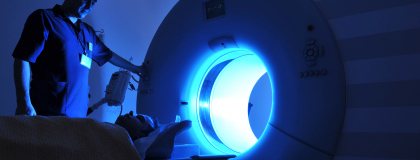
What is Health Physics?
Health physics is the profession devoted to protection from potential radiation hazards while making it possible to enjoy the benefits of the peaceful use of the atom. Radiation control incorporates an understanding of many disciplines. It has common scientific interests with many areas of specialization, including physics, biology, biophysics and many others.
What do Health Physicists do?
Health physicists:
- investigate principles by which radiation interacts with matter and living systems.
- draw upon their technical knowledge and varied experience to advise and make recommendations for use in radiation work.
- establish guidelines for adequate radiation control.
- study environmental levels of radioactivity.
- study the effects of radiation on biological systems on earth and in space.
- assists engineers and scientists in designing facilities and new radiation-control programs.
- develop and instruct training programs for radiation workers and the general public.
Where do Health Physicists Work?
- Military
- Educational areas
- Consulting firms
- Nuclear power plants
- National
laboratories - Federal and state government
- Hospital and medical research centers
- Industry
- Agriculture
- Government agencies
Why study Health Physics Engineering at Texas A&M?
Health physics is the discipline responsible for the protection of humans and their environment from the harmful effects of ionizing radiation while providing for its beneficial uses. Health physics can be considered an allied health profession, but as a discipline, it is much more diverse — health physicists may be involved in many areas such as radiation safety programs, nuclear engineering, medical physics, accelerator physics, ecology, public health, and radioactive waste management.
The field incorporates radioecology, dosimetry, instrumentation, radiation physics, radiobiology, radiochemistry, and many more subdisciplines. If you are the kind of individual who enjoys studying a broad range of disciplines and applying the knowledge from many different areas to solve specific problems, the profession of health physics may suit you well.
Degrees Offered
Students interested in doctoral level studies in health physics can pursue these through the doctoral program in nuclear engineering.
This area of specialized study in the Department of Nuclear Engineering is based strongly on the fundamental aspects of radiation effects on matter, internal and external dosimetry and environmental aspects of nuclear power. The curriculum is such that students are educated at a professional level in the field of radiation safety or health physics.
A student is required to spend the initial academic year taking formal coursework in the Department of Nuclear Engineering and in other cooperating departments of the University. The summer is spent in opportunities providing on-the-job training in health physics as well as funded research projects suitable for the Master of Science thesis. At least one additional semester is normally required to complete the coursework and a research project for the Master of Science in health physics.